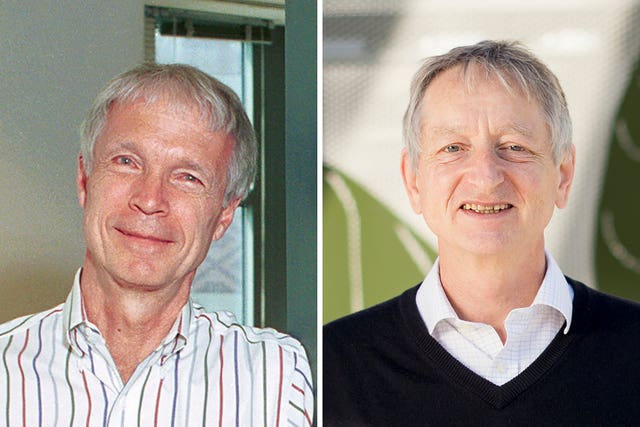Geoffrey Hinton warns of AI’s growing danger after Nobel Prize win
The British-Canadian scientist warned the technology increases the risk of cyber-attacks, fake videos and political interference.

British-Canadian computer scientist Geoffrey Hinton has warned of artificial intelligence’s growing danger after winning the Nobel Prize in Physics.
Professor Hinton, 76, said he was “flabbergasted” to be awarded the honour, which he shares with Princeton University’s John Hopfield.
While his work has laid the foundations for machine learning, technology that allows computers to mimic human intelligence, his recent efforts have centred on advocating for safer artificial intelligence (AI).
Last year he made headlines after resigning from his job at Google, citing concerns “bad actors” would use the technology to harm others.
Speaking to the media in the aftermath of his win, Mr Hinton – once dubbed the “godfather” of AI – reiterated urgent calls for companies to do more research into AI safety.
Left unchecked, he said, the technology increases the risk of cyber and phishing attacks, fake videos and ongoing political interference.
“Quite a few good researchers believe that sometime in the next 20 years, AI will become more intelligent than us, and we need to think hard about what happens then,” he said.
“If you look around, there are very few examples of more intelligent things being controlled by less intelligent things, which makes you wonder whether when AI gets smarter than us, it’s going to take over control.”
He said he was still in “shock” to discover he had won, having received the call at 1am in a California hotel without even knowing he had been nominated.
“I’m not a physicist, I have very high respect for physics,” he said.

“I’m very pleased that the Nobel committee recognised that there’s been huge progress in the area of artificial neural networks.”
He spent his career researching the development and uses of technologies that power AI and in 2018 received the Turing Award for his work.
Before his departure from Google, Professor Hinton split his time between the company’s AI research team and the University of Toronto, where he is a professor emeritus.
Born in London in 1947 to entomologist Howard Hinton and Margaret Clark, a teacher, h is the great-great-grandson of mathematician Mary Boole and her husband George Boole, whose work laid the foundations of modern computer science.
Professor Hinton, who graduated from the University of Edinburgh with a PhD in artificial intelligence in 1978, said for many decades people did not believe neural networks would come to fruition.
“Most people in the field of AI said that neural networks would never work,” he said.
“They were very confident that these things were just a waste of time, and we would never be able to learn complicated things like, for example, understanding natural language using neural networks. And they were wrong.”
In 1985, he co-created the Boltzmann machine, which helped pave the way for modern uses like AI image generation or recommendation algorithms.
In 2012, he and two of his graduate students built a neural network – a computer that mimics the human brain – that could analyse photos and identify common objects, which was hailed as a significant milestone in AI development.
Throughout his career, which includes stints at the University of California San Diego and Carnegie-Mellon University, Prof Hinton has refused to take funding from the American military and moved to Canada to continue his research.
In recent years, he has also voiced concerns about the impacts of AI technologies on the job market.
Professon Hinton shares a prize fund worth 11 million Swedish krona (£810,000) with Professor Hopfield, which he said would be donated.
“I’m going to give it away to charities,” he said.
“I know one charity I’ll give some to that provides jobs for neurodiverse young adults.”





